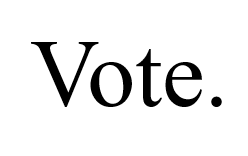The media we consume is hugely influenced by personal and corporate bias, so it’s important to be aware of social contexts. Bias is the tendency to favour or dislike something, especially as a result of preconceived opinions [Source: OED], and it’s everywhere. Bias is not negative, it’s simply human nature to form and share opinions but it’s important that we can recognise bias to ensure that our opinions are individualistic and represent personal values.
Government-funded news sources are often the most convenient, but they also have the most to gain from misinformation. In the UK, we have the BBC as our tax-funded media corporation and in return they must maintain an impartiality agreement. Here is a statement from Tim Davie, the BBC director-general, “The BBC is consistently rated as the most trusted news source by audiences- but we take nothing for granted. That’s why ensuring extraordinarily high standards of impartiality across our content is vital” [Source: BBC.com 1st July 2022]. Yet, a quick glance at recent headlines suggest they do take a stance, though inexplicit, on current affairs. In September 2021, it was revealed that Tim Davie was previously involved with the Hammersmith and Fulham Conservative Association. In recent years, the BBC has been accused of Right-Wing bias, but before that it was decades of left-wing accusations dating back to the Falklands war. Essentially, the BBC will never achieve the impartial reputation is desires and claims.
Just 54% of viewers now rate the corporation’s TV news offering as impartial, the lowest-ranking of any TV news offering in the country. [Source – Ofcom, 2020]
Perhaps, it is by no fault of their own that the BBC struggles to maintain neutrality, as previously mentioned, it’s human nature that personal biases seep into our personal projects. Politics and News is inherently opinion based after all. The BBC is not the most biased news corporation in the country it’s just an easy target to explain hidden bias, particularly due to their insistence on impartiality.
But there are a few ways we can seek alternative perspectives on current affairs. I personally read BBC news every single day, however I also read the same headlines elsewhere: a weekly newspaper, Sky News, opinion pieces etc. They all favour their own biases, but its the variation in source that allows for the perception of multiple stances. If you are bilingual it could be useful to read overseas sources, Euronews is a particularly useful source for multinational European journalists. I occasionally try to decipher articles using my broken French to deduce their national stance on a topic, it’s a great way to improve fluency, though personally not always accurate!
Bias on social media seems obvious but sometimes we can soften to personal agendas when they come from celebrities and influencers we love. Even on a more local scale it’s easy to be persuaded by friends and family members we look up to. Being persuaded is not a bad thing, but it is necessary to be well-informed before we spread opinions further, to avoid causing offence or spreading misinformation. If you open Instagram or X, formerly known as Twitter, be careful not consider the first stance as the correct one.
Is it possible to write an unbiased article? For a human, No. Our natural social and genetic predispositions will always influence the words we speak and write. However, as AI grows increasingly powerful day to day- I thought it would be interesting to ask ChatGPT to write me an unbiased article on one of the biggest modern conflicts. The Ukraine war. A topic selected since the western world has a fairly unanimous anti-Russian perspective on it, and recently the Ukraine war has been increasingly overshadowed while millions still suffect at the face of it.
A survey by IPSOS, a Paris-based multinational research firm, discovered that 8 in 10 Britons say Russia should be excluded from international sporting events, that Britain must support sovereign countries when they are attacked, and that we should take in Ukrainian refugees from the conflict.
I have included the ‘unbiased’ historical context offered by AI:
‘The roots of the Ukraine war can be traced back to Ukraine’s historical ties with Russia. Ukraine was a part of the Soviet Union until its dissolution in 1991 when it became an independent country. Tensions simmered for years, with Ukraine seeking closer ties with Europe, while Russia sought to maintain influence in the region. The conflict escalated when Russia annexed Crimea in 2014, following Ukraine’s political upheaval, leading to the outbreak of fighting in Eastern Ukraine.’ [Source -OpenAI. (2023). ChatGPT [Large language model]. https://chat.openai.com]There are not easily deduced biases in this explanation but we can’t be sure of the influences that lead to its generation. It’s also interesting to consider that AI generated Journalism, at this stage, isn’t particularly interesting or moving. Opinion keeps our media captivating, I simply suggest we maintain alert to it’s presence.
What interested me the most was asking ChatGPT for a Pro-Russia and Pro-Ukraine article on the war. The pro-Russia article concludes that ‘The Ukraine conflict is a deeply complex and contentious issue with a multitude of perspectives and interests’, while its Ukraine favouring opposition concludes that ‘The Ukraine conflict is a complex and challenging issue, but Ukraine’s determination to preserve its sovereignty and territorial integrity is commendable’. There is a definite change in favourability between the two sentences, found at the exact same spot of both articles. Ukraine is explicitly ‘commended’. From this I conclude that AI can have bias and it resurfaces questions of Bias on the original ‘unbiased’ article offered.
Essentially, no source is truly exempt from cultural biases.
*This account on bias though inspired by current affairs does not intend to take sides on any modern conflict. Although, as the article explicitly explains, no human article can be void of personal influences, it’s your responsibility to deduce this as an informed reader.




